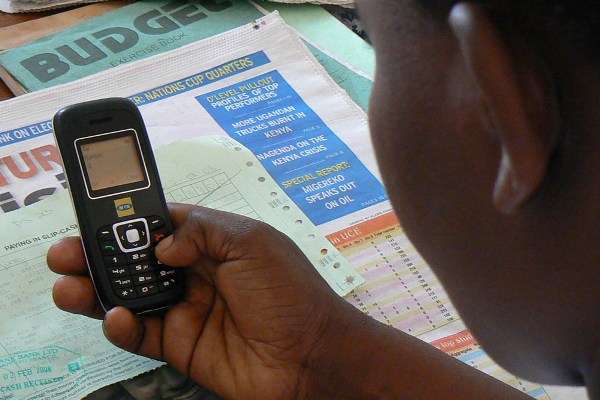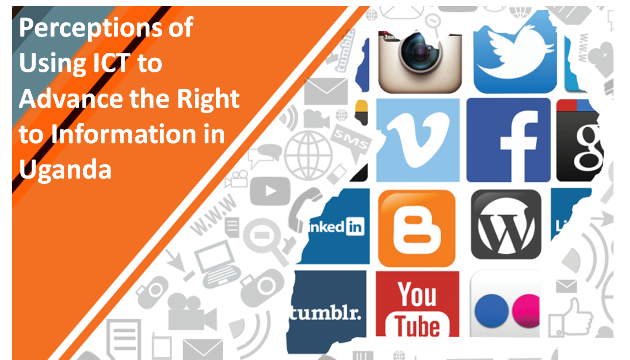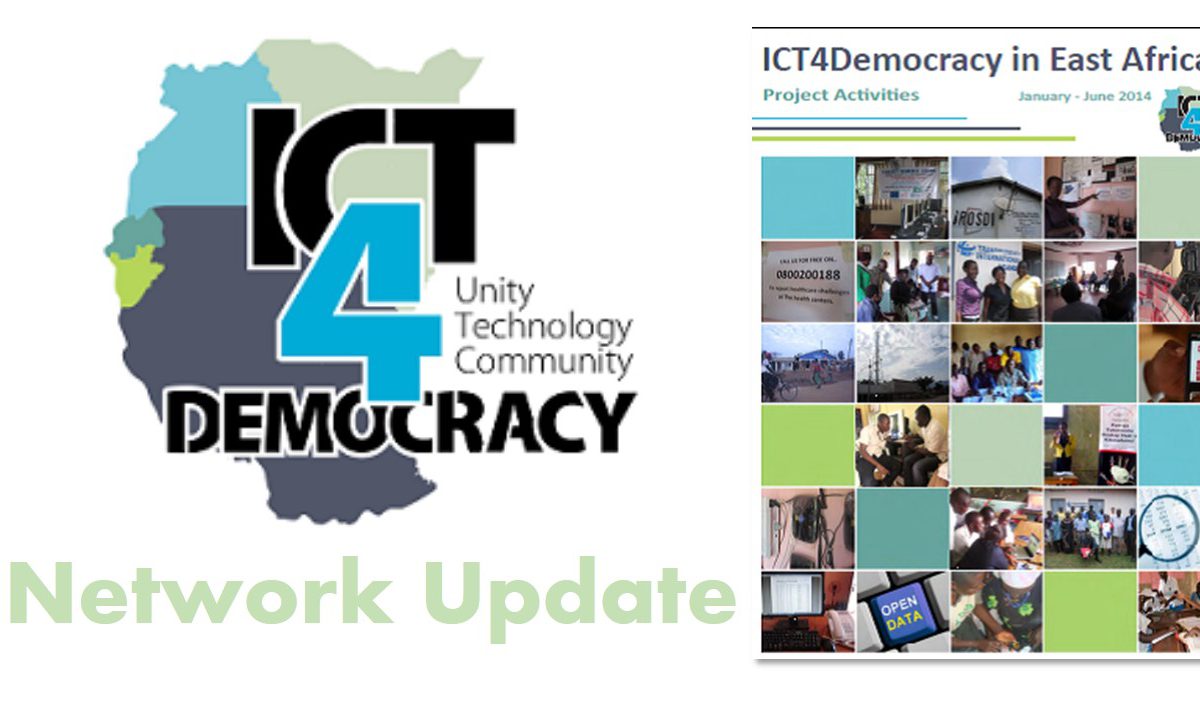By Lillian Nalwoga |
For true democracy to flourish there is need for government transparency, greater access to public information, and inclusion of citizens’ voices in decision-making processes. The use of Information and Communication Technologies (ICT) can aid in increasing awareness and empowering citizens to meaningfully participate in governance processes such as monitoring public services delivery.
The Collaboration on International ICT Policy in East and Southern Africa (CIPESA) has since 2011 implemented the iParticipate Uganda project, which leverages ICT to catalyse civic participation and democracy monitoring in Uganda. While working with grassroots based partners, CIPESA has offered capacity building sessions, and created awareness on how Ugandan citizens can effectively use different ICT tools for social accountability, including monitoring and demanding quality public services.
In 2014, CIPESA worked with the Northern Uganda Media Club (NUMEC) to document service delivery failures as a result of donor aid cuts to the Peace, Recovery and Development Plan (PRDP). The PRDP was launched in 2007 by the government of Uganda in partnership with development partners to revitalise the economy and promote peace-building and reconciliation in post-conflict northern Uganda. However, implementation has faced challenges of corruption and a lack of transparency in its methods of work.

The CIPESA-NUMEC work thus involved promoting dialogue between community members and duty bearers through community debates, radio talk shows and social media on how to improve service delivery for people living in post-conflict communities. Through these engagements, leaders have recognised the need to promote awareness of government programmes among the local communities for better monitoringof service delivery.
For instance, in one of the community debates organised by NUMEC, David Latigo Odongo, the Local Council Chairman of Acet village, Gulu district, acknowledged that lack of sensitisation hampers beneficiaries from monitoring government implemented projects. “They [citizens] do not know who will monitor and take care of PRDP projects, that is why when projects like water boreholes are constructed in the area, people look at it as freebies from either the government or NGOs,” he said.
Further, following the production of a documentary on poor service delivery, Martin Mapenduzi, the Gulu district Chairperson, was prompted to make follow-up on some stalled projects.

Similarly, in western Uganda where CIPESA is working with the eSociety Resource Centre located in Kasese district, another leader acknowledgenes to reach them. eources to health centers were located in semi-urban areas and the journalists lacked enough reseources toed the importance of promoting access to information as a means of enhancing citizens’ monitoring of public service delivery. “Meaningful participation in democratic processes requires informed participants hence the need for increased access to information,” observed John Thawite, the District Information Officer during the e-governance training for local leaders in the district.
This training was aimed at giving district officials skills to update the district website, elibrary and participate in the online district discussion group and Facebook discussions. As a result of this training, and the provision of free ICT services, the district online platforms have been more active and are updated regularly.
The centre serves as a community facility hosted by the Kasese district local government. CIPESA has supported it through the provision of computer equipment, internet subscription and facilitation for the ICT training officer.

At the Busoga Open Source Development Initiative (BROSDI) centre in Mayuge district in eastern Uganda, local communities are being supported by CIPESA in using ICT to monitor education service delivery. This has included training in the use of ICT for civic engagement, access to information and service delivery monitoring. Beneficiaries from one of the training sessions went on to create a project blog to enable users report on different service delivery issues in the district.
In 2014, more than 200 community members benefited from the trainings conducted at our partner centres.
CIPESA also conducted participatory research to document citizens’ knowledge, perceptions and attitudes towards use of ICT tools in monitoring service delivery. Participants in the research acknowledged the need to empower leaders in the use of ICT to respond to citizens’ demands. “Social media will be great when a new breed of users, that is people in leadership, start using it for civic engagement and governance monitoring,” observed a participant in a focus group discussion on citizens’ motivations for using ICT in governance processes.
These grassroots-based engagements, as well as the findings of research exercises on citizens’ and leaders’ use of ICT, access to information and service delivery monitoring will further inform CIPESA’s efforts to close the gap in the awareness and use of technology for enabling democratic processes.
Using ICT to Promote the Right to Information: Perceptions of Ugandan Citizens and Public Officials
By Juliet Nanfuka |
Towards the end of 2014, the Collaboration on International ICT Policy for East and Southern Africa (CIPESA) conducted research into how public officials and citizens perceived the potential of Information and Communication Technology (ICT) to advance the right to information in Uganda.
The studies revealed that there is a keen interest by citizens and public officials to leverage digital tools for increased transparency, civic awareness and participation in democratic processes. However, a larger proportion of citizens was using ICT relative to the public officials to improve access to information.
One study involved the administration of a questionnaire to 62 public officers from more than 30 Ministries, Departments and Agencies (MDAs). A second study targeting citizens involved the administration of a separate questionnaire amongst 235 respondents drawn from 10 districts, mainly university students, journalists, and staff of civil society organisations.
Uganda enacted the Access to Information Act (ATIA) in 2005, becoming one of the first African countries to have such a law. The Act, however, remained unimplemented until 2011 when the enabling regulations were enacted.
Although the Access to Information Act has been in existence for the last nine years, only 18% of the public officials and 10% of citizens rated themselves as extremely knowledgeable about the law. While all public officials had some level of knowledge of the law, 9% of citizens indicated no knowledge at all of the law.
Whereas citizens indicated histories of having made information requests, only 39% of public officials indicated that they had ever received an information request made formally using the 2005 ATIA. Notably, 87% of the information requests were made informally without mention of the ATIA or completing the required request forms.
The research reveals that although ICT tools such as emails and telephone calls are being used to request for information, requested information remains in silos as it is given directly to the requester with no guarantee that it will be disseminated further.
Challenges noted by public officials for the low levels of information release included limited ICT skills, the Official Secrets Act (1964) which hampers release of information to the public, and limited resources to adequately implement the Act on a more regular basis.
Meanwhile, following the launch of the Ask Your Government (www.askyourgov.ug) initiative in August 2014, the research aimed to gauge respondents’ knowledge and use of the portal. The portal was launched by government in partnership with civil society to enable Ugandan citizens to make public information requests from MDAs.
In the research, 75% of public officials strongly agreed that the use of ICT would make it easier and simpler to respond to information requests. This was supported by 79% of the citizen respondents who believed that the use of ICT to make information requests was likely to enable public bodies become more responsive than use of manual, non-ICT means. This would alleviate the “long process” and “cumbersome bureaucracy” which citizens pointed out as key reasons for not using the law to request for information.
For journalists who participated in the research, the 21 days which the law gives public officials to respond to information requests was cited as a key challenge given the tight deadlines in media work.
See: Advancing the Right to Information Amongst Ugandan Journalists
However, both citizens and officials indicated some skepticism about the effective use of ICT to adequately support the right to information. Public officials pointed out technical challenges such as low bandwidth, outdated equipment and limited skills within the MDAs.
One official noted, “Although employed by government, many officials have no access to ICT and some lack knowledge of how to use the tools.” Safety and security concerns were raised with regard to citizens’ personal information.
Key report Findings:
- 33% of the interviewed citizens had ever made an information request using the ATIA law. However, only 28% of these requests received positive outcomes.
- SMS was ranked the ICT tool that citizens were most proficient in using, at 58%, followed by social media at 44%. However, respondents used Facebook more frequently than SMS.
- Public officials ranked their proficiency highest in using SMS (63%) and email (60%), and they used email most frequently, followed by SMS. Social media use ranked low amongst public officials.
The research recommends that civil society should engage more proactively in advocacy for the right to information amongst citizens. Meanwhile, public officials should encourage citizens to make information requests. It also recommends that public officials adopt a combination of both ICT and non-ICT based channels to ensure that information requests by citizens are attended to promptly as a means of ensuring citizens’ motivation to increase their demand for information.
Public officials recognised that improvements can be made to better put more information in the public domain. They recommended the provision of more authority to information and communication officers to disclose information; increased use by MDAs of interactive websites and social media as these are channels that their audiences are using; and a repeal of the Official Secrets Act (1964).
See the full research reports below:
Ugandan Public Officials’ Perceptions of using ICT to Advance Right to Information
Citizen’s Perceptions of Using ICT to Make Right to Information Requests in Uganda
Understanding Information Flows in the Education Sector in Mayuge, Uganda
By Juliet Nanfuka
A recently concluded Situational Analysis Report focusing on the Education Department in Mayuge District, Eastern Uganda, found that voids exist in the flow of information between citizens and leaders, leading to restricted participation in decision making processes.
The poor flow of information in the sector has contributed to poor service delivery and a negative attitude amongst some members of the community towards funding their children’s education. It was revealed that some citizens, including local leaders, did not know where to find information on education or had no way of reaching information points including the district headquarters. Reports of information hoarding had further strained the school-parent relationship, resulting in parents calling for more involvement in the management of schools.
The findings of the study are based on desk research, interviews with district officials and focus group discussions which involved head-teachers, teachers, parents and members of the community on local school boards. This was also supported by a SWOT analysis that aimed at understanding the flow and management of information within the education department at district level. The study was conducted by the Busoga Rural Open Source and Development Initiative (BROSDI) in the context of the ICT4Democracy in East Africa initiative.
According to the study, parents and teachers primarily relied on radio to receive district level education related information while word of mouth was the secondary source of relevant information. Meanwhile, according to the District officials, the Education Department’s primary tool for disseminating information was through short message service (SMS) to parents and head teachers. This revealed a disconnect in information reception and dissemination with the probability that not all information is received from the Department in a timely manner if the community preferred radio to SMS. In addition, there was no efficient means for community members to raise issues with the education department.
Information flow gaps such as these need to be addressed utilising the most widely used and accessed ICT tools by both parents and teachers. This would reduce the timeframe in which information has to travel, maintain the integrity of information, and reach larger numbers of community members. These ICT can also support more inclusivity of the community members in the district education decision making processes in the pursuit of a more accountable, transparent and effective governance.
On the service delivery front, although the research commended the current leadership style for timely delivery of scholastic materials, it was faulted for its failure to address challenges such as understaffing, low teaching standards and inspectors not reaching remotely located schools.
Respondents noted the need for better flow of information as a means of addressing these challenges and maintaining current strengths including the provision of teachers in understaffed schools, infrastructure such as direct water access in schools and improved access roads to schools. The maintenance and monitoring of these challenges can rely on the efficient use of ICT to relay information between the community and the district education department.
The report highlighted social media (blogs, Facebook, Twitter) and interactive websites including the District website in conjunction with existing mechanisms such as SMS and the district notice board as tools that can serve to improve service delivery and participation in the district’s education sector.
See the full report here.
ICT4Democracy in East Africa Network Activities Update
By Juliet N. Nanfuka
The network of seven partners (profiles) unified under the ICT4Democracy in East Africa initiative have since 2011 jointly worked to enhance the capacity of citizens and governments in using ICTs to promote human rights, good governance and citizen participation.
Between January and June 2014, the partners each undertook activities that aimed to support the inclusivity of citizens in transparency,

accountability and service delivery monitoring through the use of Information and Communication Technologies (ICTs) in Kenya, Tanzania and Uganda. These activities are increasing citizens’ participation in decision-making processes and strengthening democracy in the region.
The partners have each created unique approaches to encouraging citizen participation through mobile short message services (SMS), FM radio, social media such as Facebook and Twitter, crowd-mapping platforms and a toll free call centre. Research has also been conducted by some partners on the knowledge and perceptions associated with ICT use and the flow of information between and among citizens and government.
As part of the projects, partners have pursued direct community engagement with grassroots based organisations, local governments, media, policy makers, voluntary social accountability committees (VSACs), academia, the tech community, and civil society organisations in the use and promotion of ICTs in governance.
In brief, some of the activities pursued by the partners include the below:
- In Western Uganda the Toro Development Network (ToroDev) has engaged with various stakeholders and also utilised radio and social media to inform and encourage participation in service delivery monitoring and accountability.
- The Kenya Human Rights Commission (KHRC) tapped into its existing community of Human Rights Networks (HURINETS) to advocate for open governance, and the right to information.
- iHub Research is conducting research into the flow of information between citizens and government through ICT tools in a bid to understand whether the interaction supports service delivery, access to information, and combating corruptions – and how these interactions can be improved upon.
- The Collaboration on International ICT Policy in East and Southern Africa (CIPESA) has combined research, capacity building and advocacy on the roles that citizens, media and public officials can play in the pursuit of good governance.
- The Ugandan Chapter of Transparency International is supporting communities in northern Uganda to report and act on shortcomings in the public health services delivery. This has been accomplished through provision of a toll free line, social media campaigns and working with Voluntary Accountability Committees (VACs).
- Women of Uganda Network (WOUGNET) is working with Community Based Organisations (CBOs) and Voluntary Social Accountability Committees (VSACs) to empower women in the use of ICTs that can enable them to play a part in service delivery monitoring in northern Uganda.
- In Tanzania, the Commission for Human Rights and Good Governance (CHRAGG) is educating citizens on human rights and empowering them to use their phones to report human rights violations.
For more details, please see the full activity report of ICT4Democracy in East Africa network between January and June 2014.
CIPESA is the ICT4Decmoracy in East Africa Regional Coordinator
Africa Counts RoundTable Comes to Kampala
Open Data for improved resource allocation and effective service delivery in Uganda was the theme of the latest Africa Counts roundtable held in Kampala, Uganda on March 13, 2013. Organised by Development Initiatives (DI) and Development Research and Training (DRT), it was the fourth in a series of forums aimed at increasing opportunities for “cross-country, cross-sector and multi-stakeholder” engagements that involve citizens in decision making processes on development issues across East Africa.
The forum explored avenues through which open data can be leveraged to influence resource allocation and effective delivery of public goods and considered potential challenges to the operationalisation of an open development platform in Uganda and possible means of dealing with them. Furthermore, it argued the case for the inclusion of ‘open data’ as a stand alone goal in the post-MDG agenda.
DRT’s Paul Onapa commended the government of Uganda for having in place constitutional guarantees to the right to information, as well the Access to Information Act of 2005.
However, he said, despite having a robust legal framework, access to public information remained limited. “Public data and information management schemes are still largely paper based (available in bulky hard copies and/or online PDFs) and largely aggregated. In addition, this information is scattered in various government departments and only available to a few with adequate contacts,” said Onapa.
He added that open data, with its foundation modelled on digital technology and the internet, offers an opportunity to create a “one-stop portal/platform” where citizens can access, download, and analyse information on matters that affect them, particularly basic services and issues of value for money. With this knowledge, citizens can then meaningfully participate in improving public services.
His remarks were supported by Al Kags of the Open Institute, who stated that a “switched on, participating citizenry” is key to the success of open data as a mechanism for transparency and accountability. The Open Institute has been involved in open government initiatives in Kenya, such as Code4Kenya and africaopendata.org.
Panellists Professor Abel Rwendeire of the National Planning Authority and Margaret Kakande from the Ministry of Finance, Planning and Economic Development) acknowledged the potential of open data to ensure effective resource allocation and service delivery. However, Kakande pointed to a number of challenges being faced by government bodies in embracing open data, such as a lack of legal frameworks on data disclosures.
Edward Ssenyange of the Democratic Governance Facility (DGF) and CIPESA’s Lillian Nalwoga highlighted ways in which citizens’ participation in open data initiatives can be enhanced: placing emphasis on capacity building in the use of ICTs, robust multi-stakeholder engagement (particularly with mainstream media), advocating for key government institutions’ commitment to openness, authenticity and relevance of data.
Currently, a civil society led Open Data platform has been created by the Uganda Open Development Partnership (see OpenDev.Ug and Data.Ug). A key objective is to share development information – on agriculture, education, health, roads sub-sector, etc – and on financial flows including all resource flows to Uganda (aid, domestic revenues, humanitarian assistance, remittances, etc). Making the information accessible and useable by various stakeholders – citizens, government officials, donors, civil society, media and private sector is another objective. CIPESA and DRT are among the founders of the Uganda Open Development Partnership.
Previous Africa Counts roundtable forums include The prospects of East Africa’s natural resource finds (July 2012, Nairobi, Kenya), The state of social protection in East Africa (October 2012, Nairobi, Kenya) and Progress in the Kenya Open Data Initiative (November 2012, Nairobi Kenya).
Outcomes of the Kampala forum will be used to develop targeted messages to inform policy and to stimulate public demand for openness in the conduct of data/information sharing in Uganda.





